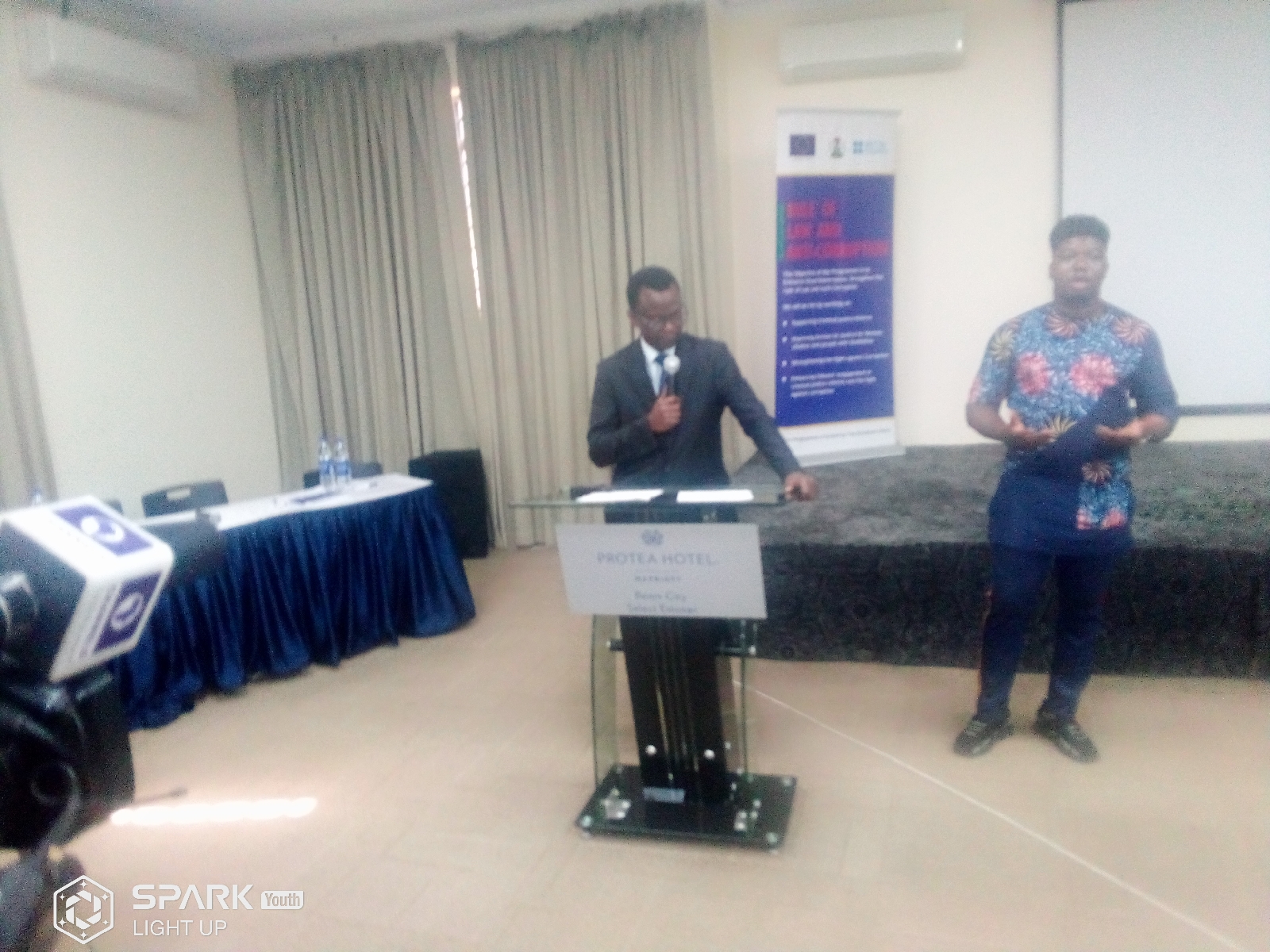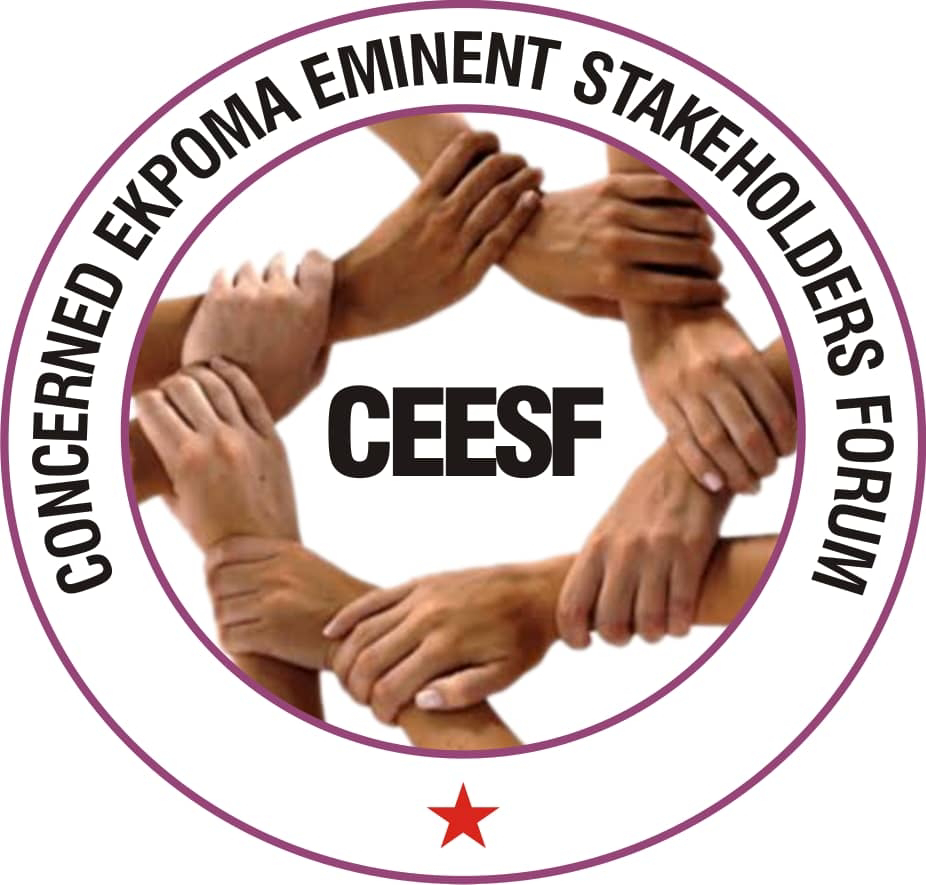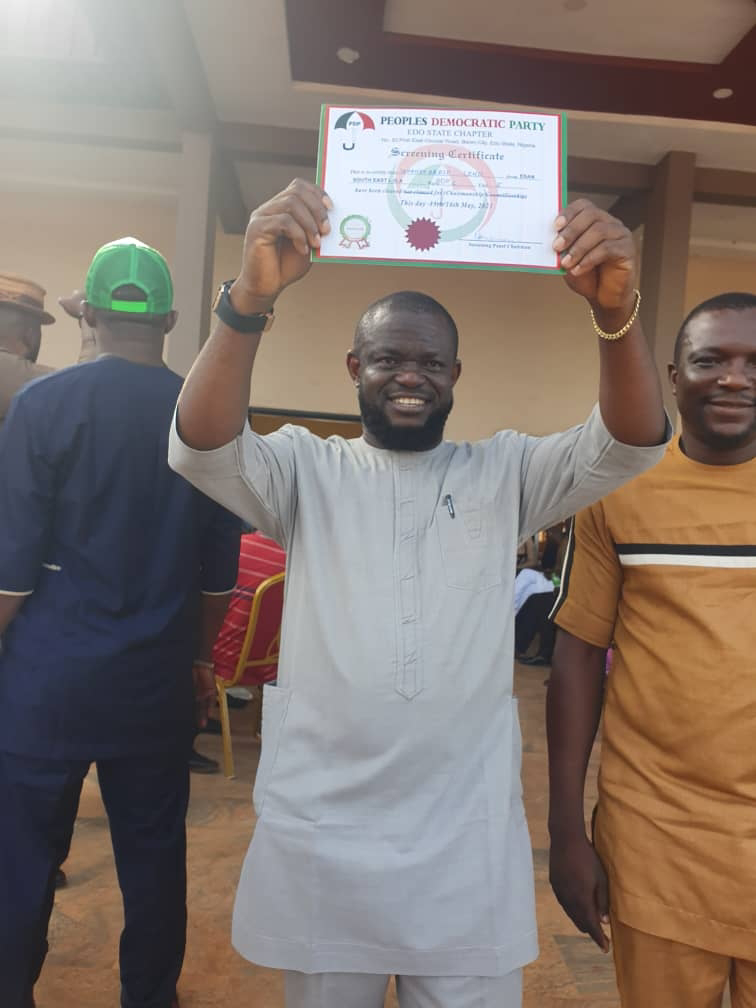RoLAC Tasks Edo Govt on Sustainance of Reforms
By Lucky Isibor
The Rule of Law and Anti-Corruption (RoLAC) programme, an intervention of the European Union in the reform of justice system and anti-corruption has urged the Edo State government to sustain the gains of its intervention in the state and learn from the experiences during the implementation of the programme.
Represntative of RoLAC National Programme Officer, Danladi Tanko, Oluwatoyin Badejogbin, making his opening remarks
The National Programme Manager of RoLAC, Danladi Tanko made the call at the dessemination, lesson learning and close out event held in Benin City on Thursday, 26 January.
Danladi who was represented by Oluwatoyin Badejogbin noted that the success recorded by RoLAC in the state would not have been possible without the enabling environment created by the Edo State government to intervene adding that though the programme is ending, the European Union will continue to work in the sector.
According to Danladi, "The programme worked in 4 components:
criminal justice reform, increasing access to justice for women, children and persons with disabilities,
improving the performance of anti-corruption agencies, civic engagement in criminal justice and anti-corruption reforms.
"RoLAC has been here in the last three years and what we've been doing beyond criminal justice reforms include access to justice for women, children and people with disabilities, strengthening the anti corruption agencies in order to advance the work of anti - corruption in Edo State. We also work with CSOs to strengthen their capacities. As you've seen in this occasion today, we work across the different sectors that are all working in these areas to strengthen their capacities, help them to apply systems that will ensure that the objectives in the areas of these reforms are all achieved".
On the prospects of the inclusion of Edo State in the second phase of the programme which he said is being developed, Badejogbin said only the European Union can determine that adding, "The provision of the enabling environment for RoLAC to operate like in Edo State are very important elements for qualification for the second phase; we would like to see that spirit taken into the future. It is entirely in the hands of the EU to determine which state to benefit from the next phase of the programme. The important thing is that we had a relatively good beginning and we hope that the interventions can be sustained over a long time".
Declaring the close out event open, the Chief Judge of Edo State, the Honourable Justice Joe Acha, enumerated the achievements of RoLAC in the state and commended the foresightedness of Governor Godwin Obaseki for ensuring that Edo despite not being among the initial four focal states of implementation in Nigeria was incorporated to bring the number to five.
Justice Acha pointed out that RoLAC's intervention has improved the criminal justice system in the state just as undue detention of suspects has been reduced as according to him, magistrates now visit all the detention centres in the state to effect release of suspects unduly detained and hoped Edo will be a beneficiary of RoLAC 2, the second phase of the project.
"For the first time under the Administration of Criminal Justice Law (ACJL), magistrates visit detection centres all over the state, not just Prisons, but the Police, Economic and Financial Crimes Commission (EFCC), Independent Corrupt Practices Commission (ICPC) detention centres and when persons are unduly detained, these magistrates release them. That's a major aspect of the work of RoLAC intervention which has improved the criminal justice system. And our officers too are regularly being trained by RoLAC; so we know things about plea bargain, sentencing guidelines. RoLAC has intervened in several areas in our activities and all the officers, judicial officers, magistrates and area court presidents are trained regularly by RoLAC on these initiatives.
"We are sure Edo State will be part of RoLAC 2, the second phase of the programme because of our own contributions; you have to provide the enabling environment for RoLAC to come in, the participatory aspect of it, contribution from the beneficiary; Edo State has done very well with the support of the government in setting up some infrastructure for RoLAC to come and work. RoLAC for now does not set up infrastructure, they train personnel, because they found Edo to be a very fertile ground where they can work, that's why the success and we're hoping that more will be achieved when they come back for the second phase".
In his remarks, the Edo State Attorney General and Commissioner for Justice, Oluwole Iyamu (SAN), thanked RoLAC for the success recorded in the implementation of the programme in Edo State.
The Honourable Attorney General who was represented by the Director of Public Prosecution (DPP) in the Ministry of Justice, Kingsley Odabi (Esq), pointed out that the provision of Information Communication Technology (ICT) equipment by RoLAC has improved case file management in the ministry as all the files are now in the cloud and can be retrieved when the need arises.
The Minister of State, Finance, Budget and National Planning, Prince Clement Agba pointed out that RoLAC's interventions is in alignment with the objectives of the National Development Plan 2021 - 2025 aimed at improving justice and the rule of law with capacity building of judiciary personnel.
According to the minister who was represented by the Deputy Director, International Cooperation Department of the ministry, Mr. Johnson Baraye, "RoLAC's interventions align with the objectives of the National Development Plan (NDP 2021 - 2025) which are to improve justice and the rule of law by providing training for judiciary personnel and ensuring partnership with law enforcement agencies, enhance anti-corruption capacity across the public, private and social sectors through technology adaptation, citizen engagement and inclusion through policy changes".
The Rule of Law and Anti-Corruption (RoLAC) programme is funded by the European Union under the 11th European Development Fund. It is implemented by the British Council – originally in 4 states (Adamawa, Anambra, Kano and Lagos). Edo became a focal state in 2019 following representations made by the state government to the European Union.




Comments
Post a Comment